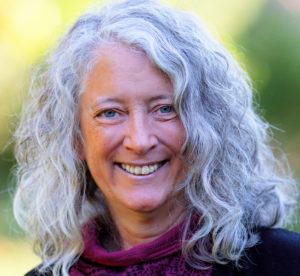
When it comes to choosing a health care system and provider, it’s important to be clear about your beliefs and needs, and how you prefer to be treated.

If your primary requirement is to be sure the service will be covered by your insurance – that will, of course, be the limiting factor. Generally speaking, you’ll be constrained to conventional medicine, although complementary services may be partially reimbursed. And some conventional diagnostics and treatments may also require pre-authorization by your insurance company.
The strength of your belief in a system or treatment will play a major role. If you are firmly convinced that nobody has ever helped you and nobody ever will, it really doesn’t much matter what avenue you choose, because you’re most likely to be helped minimally if at all.
If this statement seems harsh, please let me explain.
Cancer patients who come to our office believing that the chemotherapy their oncologist has prescribed is going to kill them don’t respond nearly as well to treatment as patients with the same cancers who believe the therapy will help them.
If you believe that FDA-sanctioned treatments validated by double-blind, placebo-controlled studies are the hallmark of efficacy, you won’t do well with complementary medicine.
Similarly, if you believe that energy medicine is make-believe, “woo-woo,” witch-doctor voodoo, you’ll be un-receptive and much less likely to be helped.
The point I wish to make, based on years of experience, is that your receptivity to a treatment, added to its strength, will powerfully influence its effectiveness.
Personal preferences are important, too. If acupuncture is well-indicated for your condition but you hate needles, acupuncture is probably not for you.
If you’re simply looking to suppress symptoms rather than seek the underlying cause of your ailment, and if you don’t want to think about the lifestyle changes that may be required for a permanent cure, you probably won’t want to work naturopathically. And if herbal medicines make you gag, you won’t want to make Chinese medicine your first choice.
Regardless of the path you choose to follow, it’s important to realize that you’ll need to participate with positive expectations to draw the maximum benefit.
Oriental medicine, Ayurveda, naturopathic medicine, and conventional medicine – all medical systems depend on unique assumptions and long-held traditions.
It doesn’t make sense to mix up the dietary advice of a Chinese medical practitioner with that of an Ayurvedic doctor. While it’s a good idea to explore the alternatives at the start, at some point you’ll need to follow a single path with consistency.
A treatment here, another there, generally just ends up confusing our minds and bodies and convincing us that nothing will ever help.
Another important dimension is how you resonate with your practitioner, and how strongly you believe in their ability to work with your condition.
If a practitioner assures you that he or she can cure your condition with one-hundred-percent effectiveness within a given timeframe, my advice is to put on your sneakers and run away as fast as your legs will carry you.
No practitioner has the power to cure you unaided – your presence and participation will always be important factors for the suggested cure to work.
Consider your options, choose with care, commit for a reasonable timeframe, and re-evaluate your options if you aren’t satisfied with your progress.
To learn about Dr. Connie’s work, follow the link to her Naturopathic Health Consultations website.
